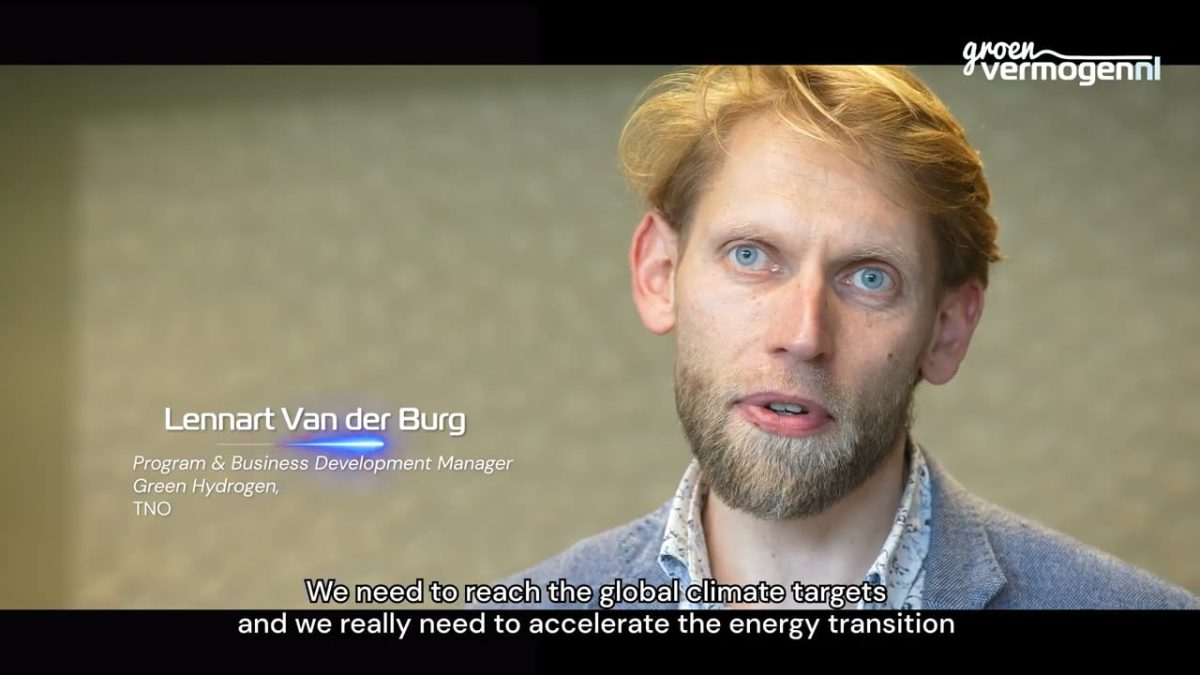Launch of research project on green hydrogen production technologies the largest of its kind
With 58 partners, a grant of over €34.5 million and a total budget of over €50 million, GroenvermogenNL’s new HyPRO project is the largest R&D project into green hydrogen in the Netherlands to date. This R&D project was approved this week by the Dutch Research Council NWO. The consortium will research more sustainable production of hydrogen by improving electrolysis & plasma technology: “at the heart of the hydrogen revolution.”
Reducing the cost of green hydrogen and scaling up its production requires improving electrolysis technology. The R&D consortium HyPRO is going to make a major contribution to this. The consortium also focuses on developing a Dutch supply chain for materials, components and systems. HyPRO is the fourth R&D project to be launched by the National Growth Fund program GroenvermogenNL.
Paulien Herder, board member of GroenvermogenNL
“GroenvermogenNL is an important driver for the development and scale-up of cost-efficient and socially responsible green hydrogen. This HyPRO consortium plays a crucial role. By involving leading local and international partners, it will take concrete steps to improve electrolysis technology – the heart of the hydrogen revolution. With this, HyPRO contributes directly to the objectives of GroenvermogenNL: to stimulate the Dutch manufacturing industry and thus the economy by realizing innovations in technology.”
About the international consortium: 58 partners
The name HyPRO stands for: “towards flexible, durable, and high-performance Hydrogen Production Technology”. The HyPRO consortium, like GroenvermogenNL’s other R&D projects, was formed during two intensive workshops in which all parties had to jointly come up with a single proposal. The HyPRO project is coordinated by TNO together with the Technical University of Twente. HyPRO is a collaboration of 10 universities, five colleges, two research institutes and more than 40 companies, of which the 15 Dutch hydrogen start-ups play an important role. Also special is that companies from the United Kingdom, Italy, Denmark, France, Germany, Brazil, Japan and America are contributing financially or in-kind to this consortium. HyPRO’s research will run until 2029.
Lennart van der Burg, hydrogen expert TNO and the project leader
“In the HyPRO consortium, 17 knowledge institutions and 41 companies will collaborate on the largest hydrogen research project in the Netherlands. The main goal is to further develop hydrogen production technology and accelerate its implementation. It is a unique international consortium involving the entire hydrogen production chain. From developers of high-tech components and machines to the (future) hydrogen producers of the Netherlands. The climate and energy transition is urgent. Green hydrogen will play an important role in making heavy industry, among others, more sustainable and in integrating and storing sustainable electricity from offshore wind. This HyPRO consortium strengthens the knowledge base of the Netherlands in hydrogen production technology, the development of high-tech companies for the earning capacity of the Netherlands and deploys a series of innovations that make hydrogen production technology more efficient and sustainable.”
See how the consortium came about here

About the R&D program of GroenvermogenNL
To achieve deployment of green hydrogen on a large scale in the Netherlands, we need innovative technologies for hydrogen and for the chemical industry. The R&D program of GroenvermogenNL connects parties in balanced, unique consortia to solve urgent research questions. A total of €177 million is available for this purpose. Seven themes across the value chain have been identified. Three themes have started research programs. HyPRO forms the fourth consortium. The formation of the last three consortia will begin this autumn.
GroenvermogenNL: innovation engine for a green hydrogen economy
GroenvermogenNL is a program funded by the Dutch National Growth Fund. It aims to stimulate and accelerate the use of green hydrogen in Dutch industry by focusing on R&D, pilot projects, demonstrations and human capital. A total budget of €838 million has been set aside for this purpose through 2030.




